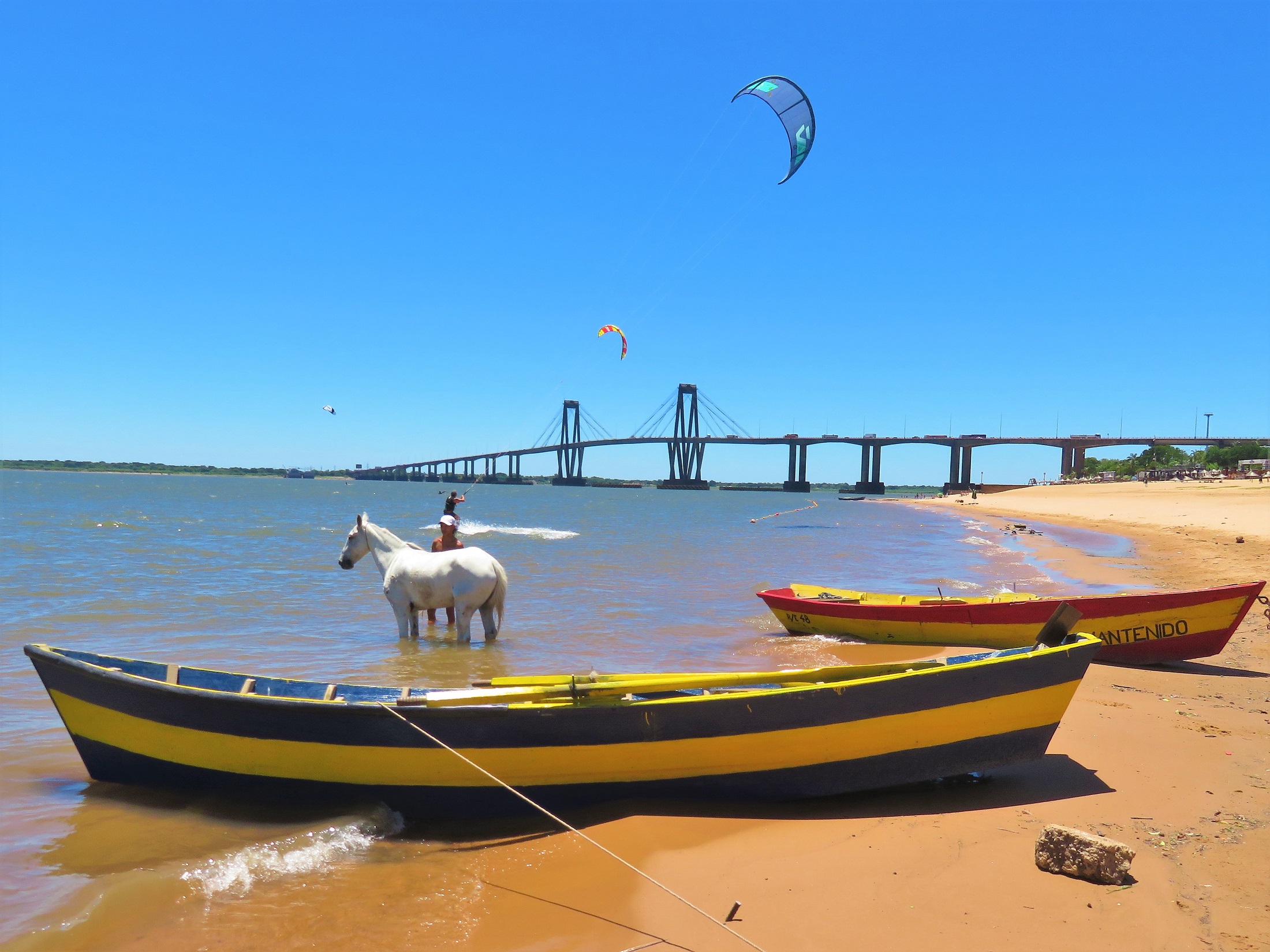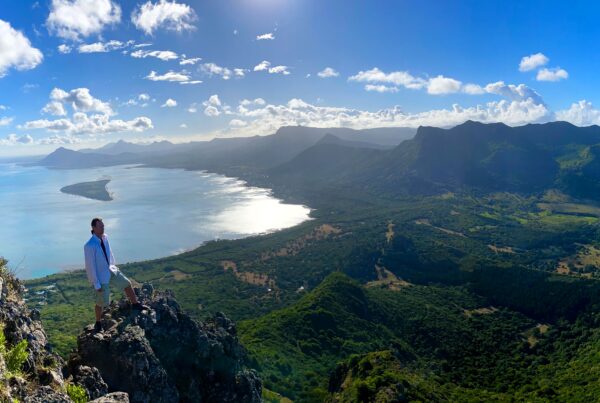“Listen to the sounds of Corrientes’ affluence and poverty—hooves clip-clopping, tugboats chugging, cartoneros whipping, Model-T engines sputtering …”
Luis claps his hands to get the homeowner’s attention and offers his cleaning services. “There he is, Kim, here’s my chance.” After more than six hundred nights weathering this covid-19 shitstorm in Corrientes, Argentina, our pandemic pause is over and it’s time to get the hell out of Dodge. And my pillows, blender, dumbbells, Swiss ball, and other crap won’t fit in my backpack. Luis could use them or sell them, but I haven’t heard him clapping in a couple weeks. I grab a pillowcase of clothes and rush downstairs to catch him.
Luis and his brother, Paulo, are cartoneros that pull a cart around Corrientes searching for odd jobs and recyclables. I give Luis my Goodwill clothes and tell him—in my shitty Spanish—to meet me again in a week for more stuff. I point to my apartment building, “Soy mochilero, voy a Posadas.” I’m a backpacker, I’m going to (the next town) Posadas. We agree to meet the day before I’ll finally leave my pandemic paradise.
***
Chirping birds and chugging tugboats are the only sounds I hear outside my thirteenth-floor, Airbnb apartment on this quiet, Good Friday morning. The tugboats belch black smoke while pushing flat barges full of corn and soybeans upriver on the mighty Rio Paraná, their diesel engines pumping out a bass drumbeat. Only the Amazon River is longer in Las Americas.
Our farmer grandparents, Kim, would appreciate northeast Argentina’s farmland. Argentina is the world’s largest exporter of crushed soybeans—or pig feed—and only us Yanks export more corn.
Argentine farmers are pissed at the city slickers in Buenos Aires. The Peronista bureaucrats are overtaxing farmers and monkeying with the country’s economy by imposing ridiculous export bans and fixing prices. Textbook economic mismanagement.
Tugboat captains blast their horn when party-boats, sailboats, and fishermen float into their path. The view from my window is tugboats, container ships, fishing canoes, power boats, sailboats, and kite-surfers, all jockeying for position along Río Paraná.
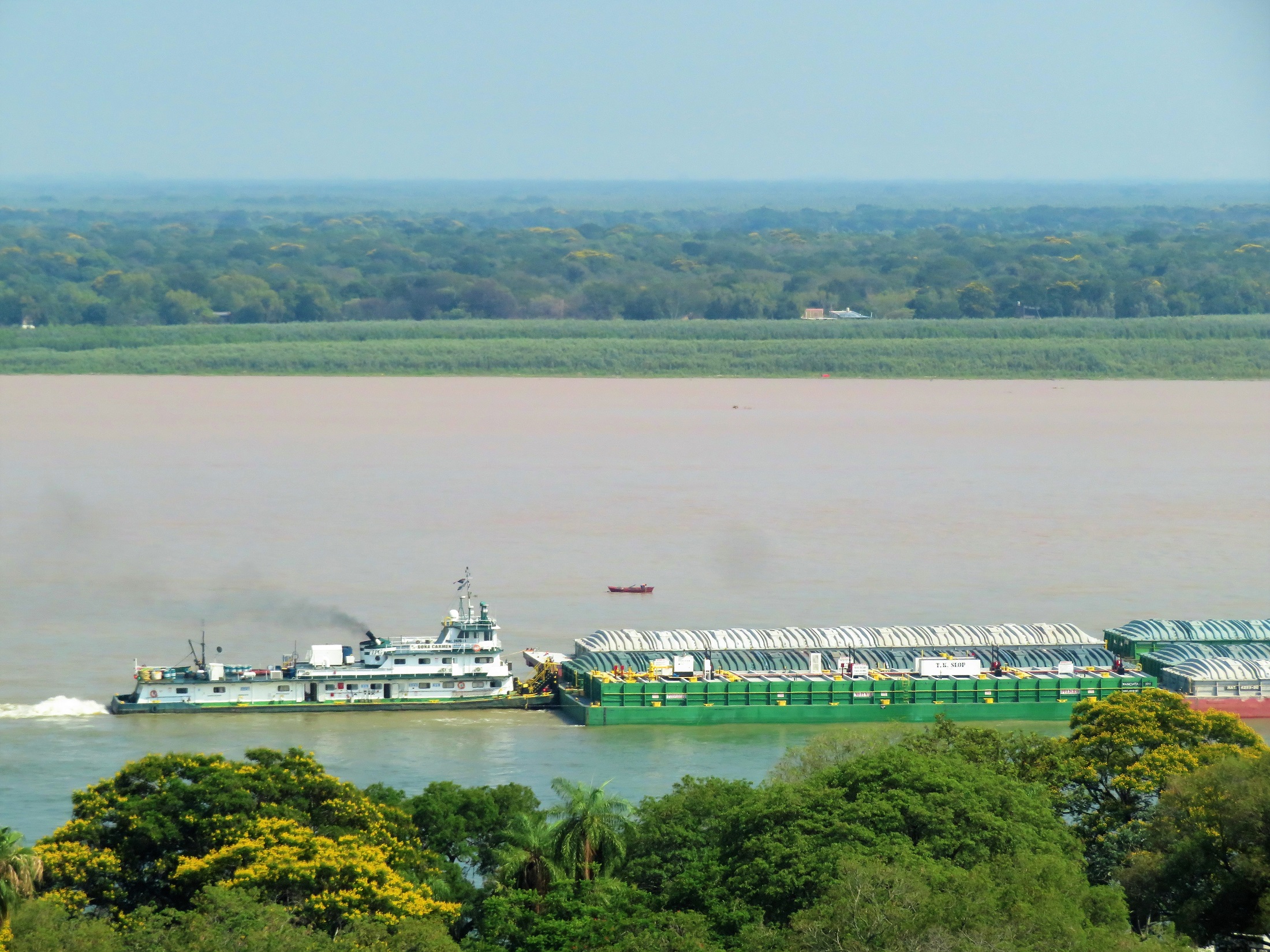
Lautaro Rosé drowned in Rio Paraná—supposedly while running from Corrientes police—and hundreds of villas residents chant, “Justicia por Lauti” as they beat drums and march along the main street. Police officers sit on their motorcycles as the protestors carry signs saying, “no to the easy trigger” and “there’s no justice, only divisions, victims, and oppressors.”
Abortion activists chant slogans and blast sirens in support of legalizing abortion. But the Catholic church bells drown them out, and Argentina’s supreme court bursts their bubble by voting to keep abortion illegal. In Plaza Vera, dental hygienists yell into a megaphone to protest their falling wages and skyrocketing prices.
“Argentina’s la grieta, or crack, reminds me of our red versus blue and inequality back home.”
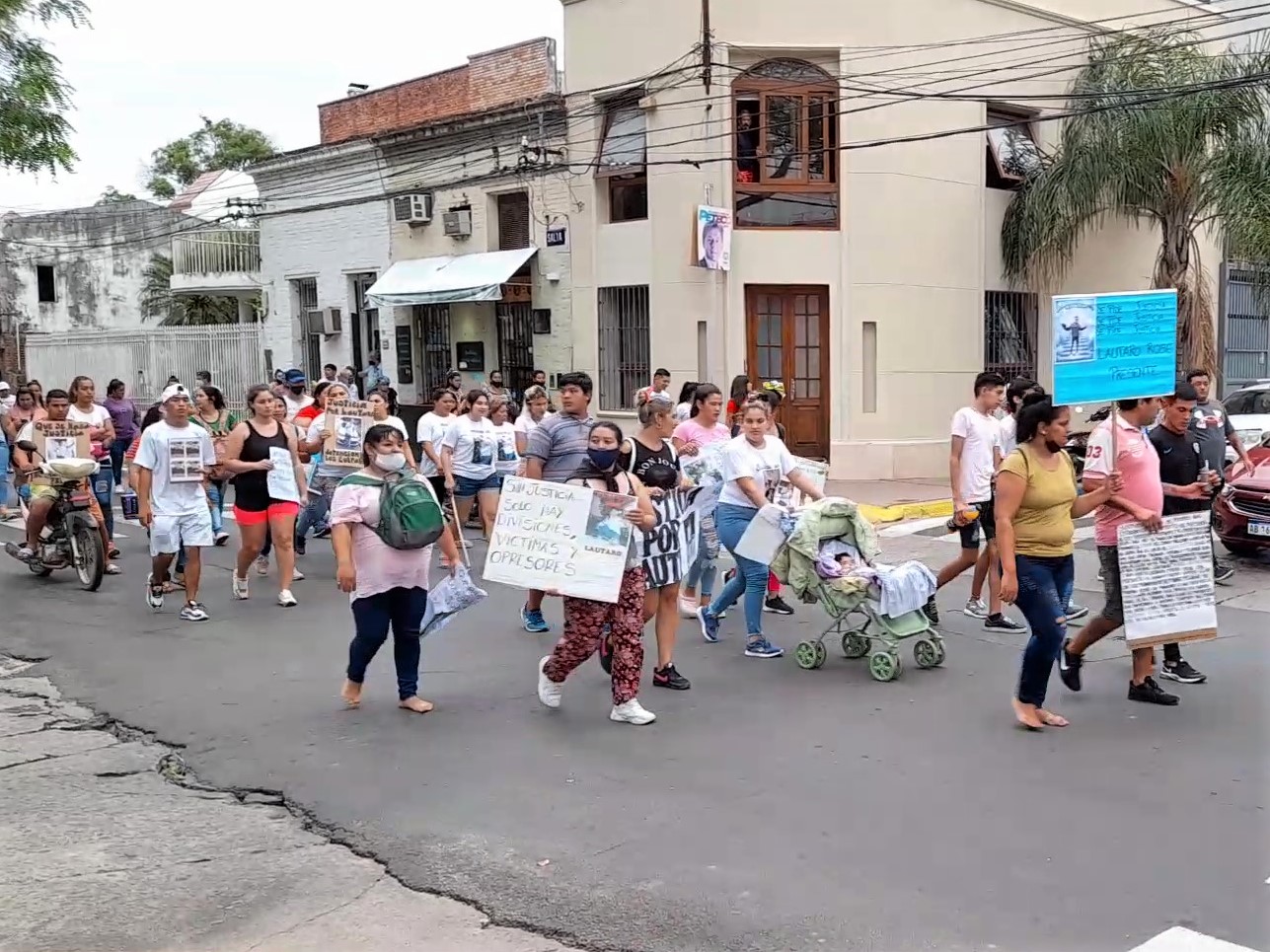
Dogs bark constantly in my Camba Cua neighborhood—one of Corrientes’ ritziest. My neighbor’s boxer and terriers go berserk when the pool cleaner rings the doorbell. If the black poodle goes nuts, it’s a fruit and veggie vendor parking his cart at a regular customer’s house. When a professional dog-walker cruises by with eight to ten clientes de perros, all the dogs go crazy. Within a three-block radius, my neighbors have myriad choices of pet shops and veterinarians.
Accordions, guitars, and singers are “jamming” in my building’s party room—unfortunately located next door to my studio—but they sound way too good to be amateurs. My Airbnb host invites me to join them, and I get my first taste of northeast Argentina’s beloved Chamamé folk music.
Four hundred years ago, the music-loving, indigenous Guaraní people—hunkering down at the nearby Jesuit missions to escape slave raiders—blended Spanish guitars, and later German accordions, to give birth to Chamamé. Corrientes is the heart of Chamamé music. Chamamé is a Guaraní word that roughly means “to be in the rain with soul,” or in other words, partying.
“My favorite feature of Chamamé is the cheek-to-cheek dancing.”
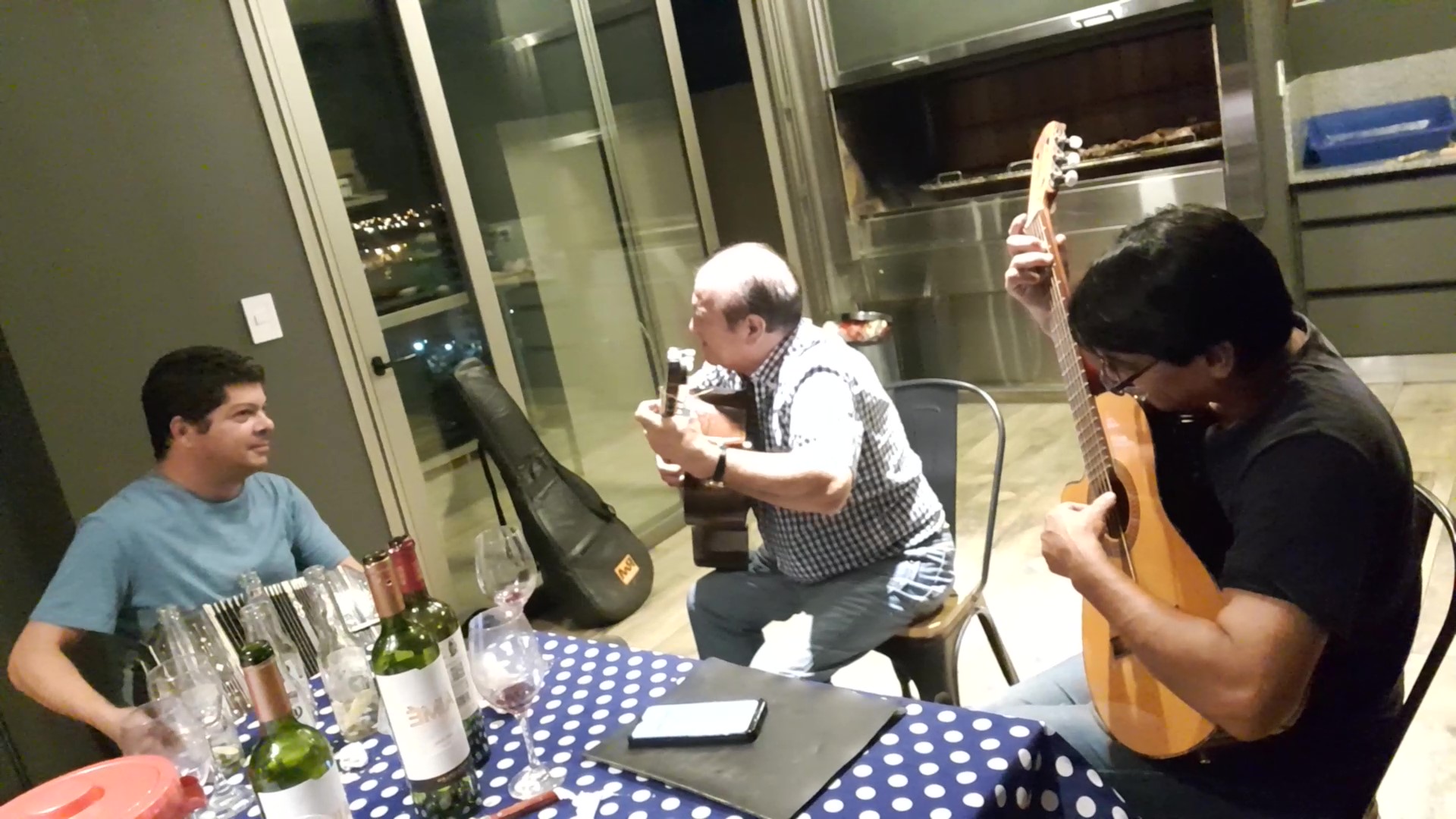
Horseshoes clip-clopping on pavement is the sound of poor cartoneros riding their crude wooden carts through Camba Cua looking for cardboard and recyclables. Cartoneros whip the horses struggling to pull carts overloaded with construction debris.
One-hundred-year-old pistons sputter when my wealthy neighbor—the owner of Camba Cua’s bluest pool—takes his 1925 Ford Model-T truck for a spin along the costanera, Corrientes’ riverside drive that reminds me of the boardwalk along Mission Bay.
Argentina’s growing wealth gap is on full display when my rich neighbor drives his expensive, antique truck past a cartonero on his horse-drawn cart.
“What is that clicking and clanking sound?”
In my previous apartment, a narcissistic woodpecker flirts with its reflection in the mirrored glass, pecking its beak against the glass over and over, then its claws clanking on the balcony railing. Peck, peck … clank. Peck, peck … clank. My alarm clock becomes peck-peck-clank.
This wacky woodpecker is full of itself, and among South Americans, Argentines have a similar reputation for being overly proud. My Brazilian friend jokes about Argentinians, “Only really sophisticated people can create a mess this big.”
I love Argentina, Kim, and it’s deeply painful to see Peronistas burning the American flag and calling us “vulture lenders” (the IMF is based in NYC). Nobody else will lend money to Argentina because their inept, corrupt government perpetually goes bankrupt—nine times and counting. Translated into English, Argentina means default.
I’m rooting for Argentina, and I want to see them break their self-inflicted cycle of bankruptcy. The Argentine peso continues to freefall; one US dollar bought seventy-three pesos when I arrived, now a dollar buys two hundred fifteen pesos. With their world-class agriculture, manufacturing, natural resources, tourism, and brainy citizens, Argentina’s economy—and currency!—should be kicking ass.
Argentines are tough; Porteños banged pots and pans outside the houses of retired military dictators until they were jailed for their “dirty war” murders. Now Argentines need to send their corrupt politicians to jail. I don’t believe in conspiracy theories, but I really wonder if the Peronistas intentionally keep their villas constituents poor to perpetuate their power. So, Kim, don’t cry for Argentina’s Peronistas.
“Argentina has everything they need to be successful, except a competent government.”
Corrientes is the longest layover on our Kim’s View world tour so far (previously, our longest stays were in Lviv, Cartagena, and Nairobi). I could have flown home to San Diego at the beginning of the pandemic, Kim, but I’m glad I stayed and listened to northeast Argentina.
***
The doorman refuses to let Luis inside my building on the day before I blast off, so Luis calls up to me from the street. His daughter, Diana, says today’s her birthday, “hoy es mi cumpleaños.” I give them a cart full of stuff and a few pesos for beer and birthday cake. Mission accomplished. Even their dog, Blanca, smiles for our selfie.
The next morning, the last sound I hear in my vagabond Valhalla is Luis and Paulo yelling thank you and have a good trip.
“Gracias, Arturo, buen viaje.” KV


